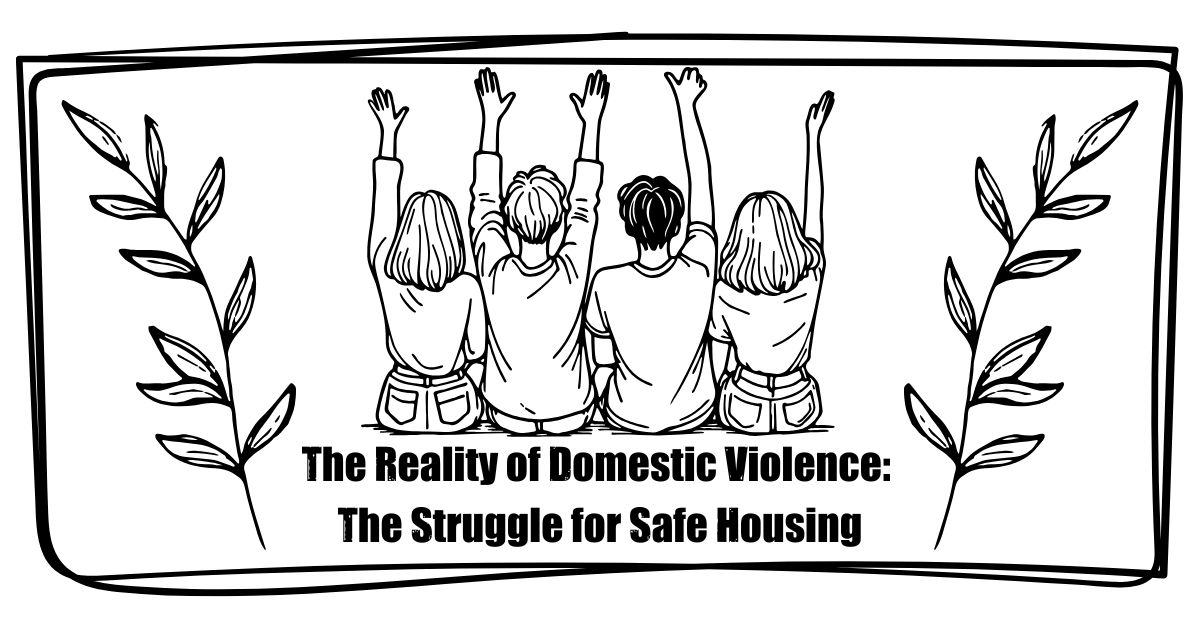
In the midst of Domestic Violence Awareness Month, it’s essential to use this time as an opportunity to focus attention on the wider complexity of domestic and intimate partner violence (DV and IPV, respectively).
By virtue of its name, DV defines abuse that takes place in the home. So when that very home becomes a dangerous place for survivors, how can they escape from their living situation quickly enough while finding a new safe, consistent place to live?
The struggle for housing and the threat of homelessness are a major factor in preventing survivors from seeking help, as well as why some are even forced to return to abusers just to secure a roof over their heads. The need for safe housing is a crucial factor to aiding and liberating survivors and must be a priority when providing services to these most vulnerable individuals.
A Story of IPV and a Struggle for Housing
For the safety of all involved, we’ve removed any identifying details about the individuals in this case.
Recently, DVP worked with a client that had been married for a time before the spouse grew to be increasingly hostile – and eventually outright abusive. Because of their longer relationship and sharing similar friends and family, the survivor feared reporting the abuser not just for the loss of housing, but the loss of support from their whole community. The threat of losing an entire sense of home – both physically and metaphorically – prolonged the individual’s imprisonment in the abusive relationship.
Eventually, the situation grew dire enough that the survivor did eventually leave the relationship. They first briefly stayed with some nearby friends before making their way to a DV shelter in the city. From there, they gained access to a variety of services and resources, including DVP, that helped provide financial, medical, and legal support. This enabled them to protect themselves from the abuser and work towards more permanent housing beyond the shelter system.
This survivor’s story is one of success – but not all share the same happier ending. Too many others lack access to temporary housing with friends or family, get stuck in a rotation of shelters, or end up homeless altogether. These individuals are in dire need of housing. Improving available shelters while bettering the pathways to subsequent permanent housing is essential to liberation and a fully-realized life beyond abuse.
Survivors Stuck in the Shelter-to-Shelter Pipeline
While a necessary and helpful temporary support, the DV shelter system is plagued by what some call the “shelter-to-shelter pipeline”. Survivors face a state-mandated maximum stay of 180 days in DV shelters. Those that don’t have permanent housing at that point will either move into another shelter, second-tier DV shelter, or even to the already-overtaxed homeless shelter system.
This pipeline is well documented. Data shows that within the last five years, over 50% of survivors left their initial emergency shelters for another shelter upon reaching the 180-day limit. Contrasting that, only 9% could gain access to permanent housing before the end of the limit.
The goal of organizations like DVP is not just providing basic necessities and legal services – it’s about achieving the more profound, existential goal of empowering clients into a fulfilled existence. The shelter system can’t be the final step in their journeys. That’s why DVP works tirelessly with partner organizations to pave the way for survivors to reach permanent housing as quickly as possible.
How to Respond to Domestic and Intimate Partner Violence
Remember — no situation is permanent. The Domestic Violence Project and organizations like ours offer resources to help anyone find their way out of abusive situations – including guidance on finding safe housing — while setting themselves on a path of recovery, safety, and liberation.
If you or someone you know is in an abusive situation, reach out to us:
- Contact our intake line: 1-833-321-4DVP (833.321.4387)
- Email us at dvp@urbanjustice.org
- Send us a direct message here
If you want to do more to help survivors of abuse in all forms, DVP welcomes the assistance of all types of volunteers, translators, and more.
Learn more about how you can support survivors and their children to live free of violence and abuse.
Contact Domestic Violence Project
We welcome your questions and comments
Main Office
40 Rector St., 9th FloorNew York, NY 10006
Intake line: 1-833-321-4DVP (833.321.4387)
Email: dvp@urbanjustice.org
Hours
M-F: 9:00AM-5:00PM
By appointment only.


